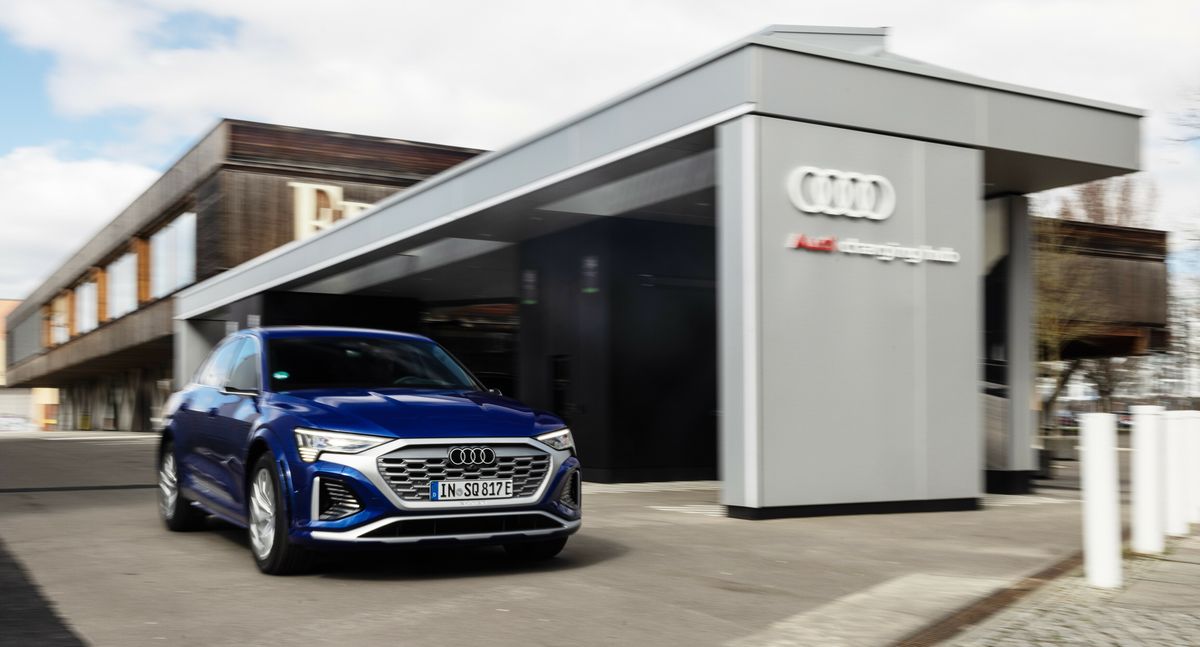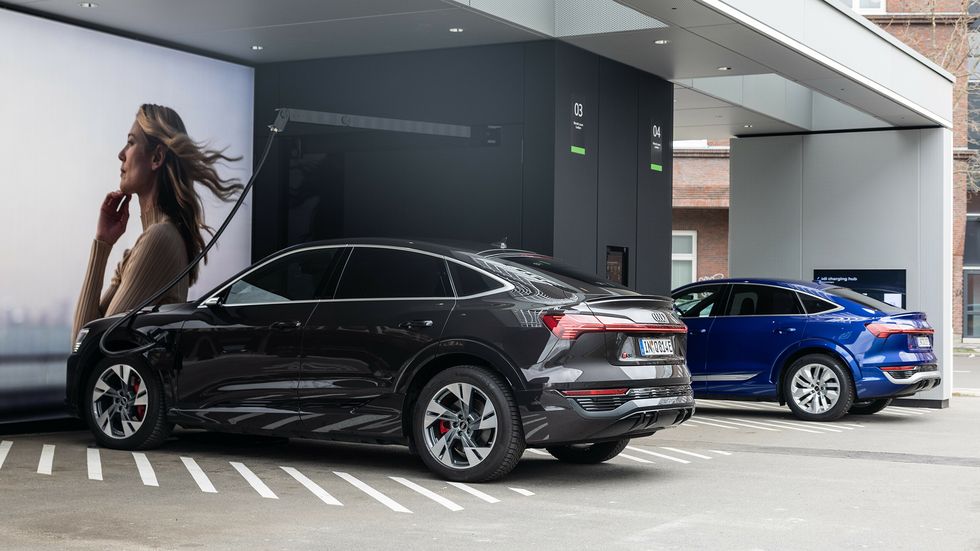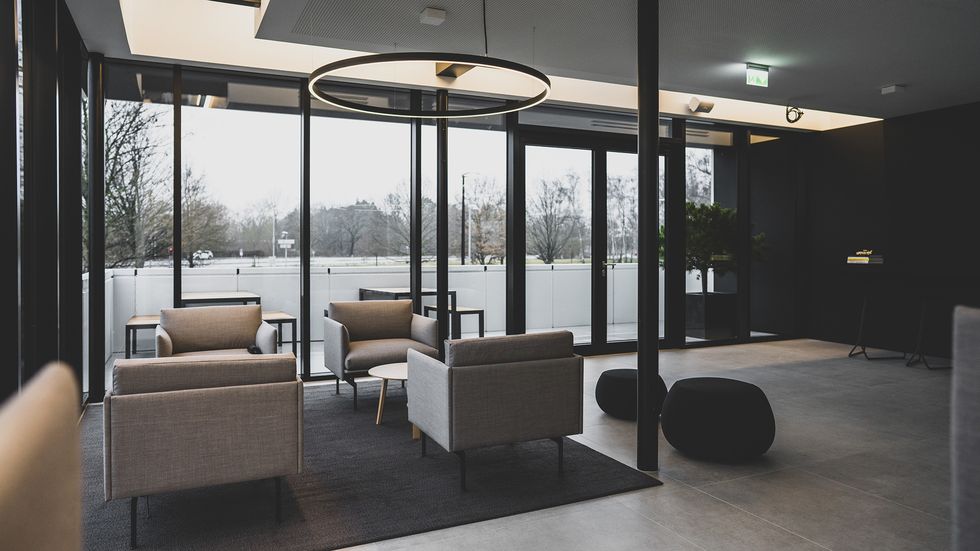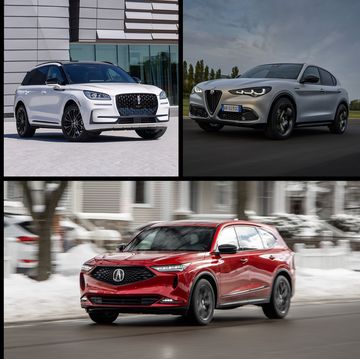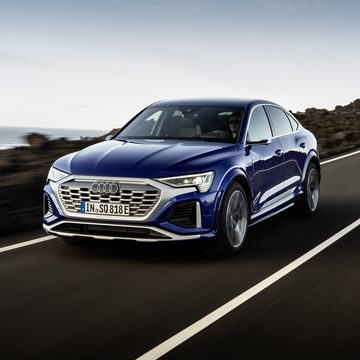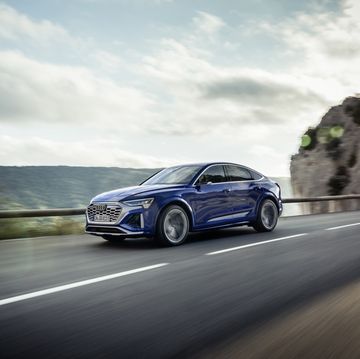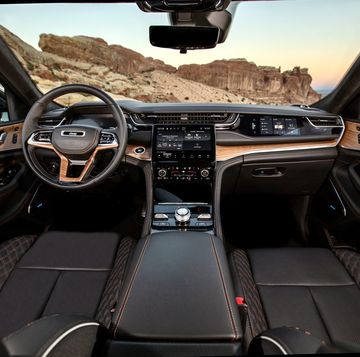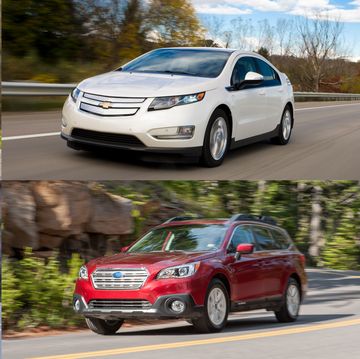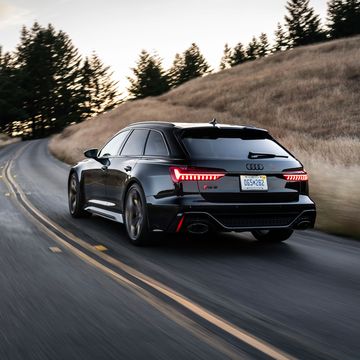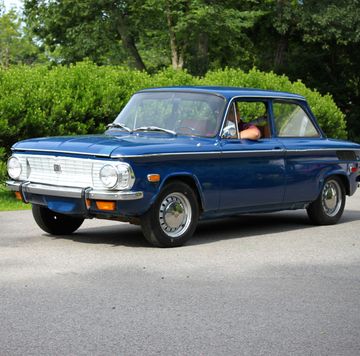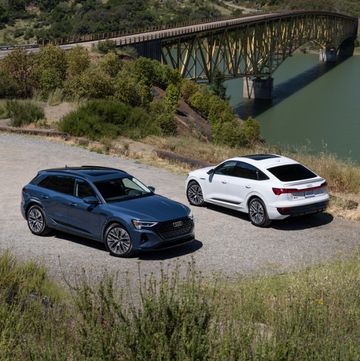- Audi expands reservation-only charging hub concept to Berlin, after successful tests in Nurumberg and Zurich starting in 2021.
- The charging hub employs used batteries from Audi test vehicles to store power, thus requiring a minimal connection to the grid and less hardware during the build phase.
- The automaker plans to expand the charging hub concept to more cities, after observing a 70% customer return rate at one of its existing hubs.
A reservation-only luxury charging hub with a work and rest area inside may have seemed like a one-off concept at first, when the automaker opened the first one in Nuremberg, Germany, in 2021, but the idea is gaining momentum.
The automaker has just opened its third charging hub near a Frischeparadies supermarket and bistro in Berlin, powered by second-life batteries. The batteries themselves—usually sourced from Audi prototype EVs that had been dismantled following a testing phase—draw power from the supermarket on a load- and needs-oriented basis during off-peak hours.
Audi has previously showcased this cube-based charging system that sips power from an existing grid connection, requiring relatively little electrical infrastructure work.
"Our dynamic load control system enables us to shift our energy demands to a time of day when Frischeparadies is using less power from the grid," said Elias Hammer, the Audi Manager responsible for the rollout in Berlin and energy system integration for the Audi charging hub.
As a part of this effort Audi is also testing out something else: Premium charging hubs owned by automakers, rather than station builders and operators, third-party commercial businesses, or fleet operators. Until now, it has largely been Tesla in North America that has invested in building its own network of charging stations for the benefit of its owners—albeit minus an airline-style business lounge for owners.
Ingolstadt is betting that there could be a market for such an EV charging hub concept.
Audi notes that its pilot hub in Nuremberg, which features a 2150-sq-ft lounge and six charging points, has a 70% customer return rate since opening in December 2021. The hub provides 36 charging sessions per day on average, with customers having integrated their visits into their routines, but has also recorded up to 62 charging sessions on a peak day.
The second hub in Zurich, Switzerland, is seeing similar levels of demand. The automaker notes that about half of hub visitors arrive in vehicles from the Audi brand.
"Berlin is yet another example of the success of our smart charging concept," said Ralph Hollmig, Audi charging hub project manager. "In this way, we will manage all hub locations as efficiently and sustainably as possible. We are working on energy optimization. In the future, we can even imagine using smart trading to buy electricity from the energy exchange. This also means, for example, that we buy electricity from renewable sources when it's affordable."
Of course, a reservation-only charging hub requires some mild planning, a predictable schedule, and some free time in one's weekly routine, with the hub aimed at EV owners who might not always have access to a charging point at home.
Could this reservation-only EV charging hub concept work stateside, or are EV stations with no reservation requirements a better fit for the US? Let us know what you think.

Jay Ramey grew up around very strange European cars, and instead of seeking out something reliable and comfortable for his own personal use he has been drawn to the more adventurous side of the dependability spectrum. Despite being followed around by French cars for the past decade, he has somehow been able to avoid Citroën ownership, judging them too commonplace, and is currently looking at cars from the former Czechoslovakia. Jay has been with Autoweek since 2013.
